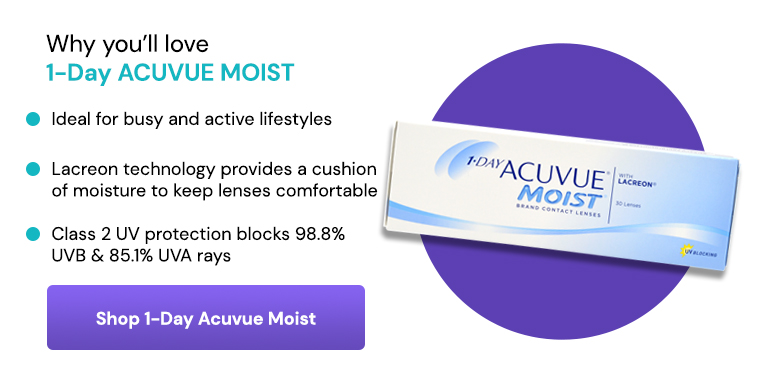The ultimate guide to using body language in business
The Ultimate Guide To Using Body Language In Business
We all want to make a good impression during a job interview or in the workplace, especially when we’re applying for our dream role, presenting to an important client or talking to our boss about a pay rise.
However, little things like playing with our nails, not making enough eye contact or sitting in the wrong position could really make the wrong impression without us even realising, potentially putting our interviewers, colleagues and seniors off.
We surveyed employees to find out what body language they find the most off-putting in job interviews and which scenarios at work they find the most intimidating.
We then spoke with career and confidence coaches, as well as a body language expert, on which non-verbal communication techniques we should be using to exert confidence in even the most nerve-racking scenarios.
Two in five are put off by an interviewer with a blank facial expression
Even if you have no problem with coming across as confident in a job interview, making a good impression can be difficult if your interviewer is using body language that makes you feel uncomfortable.
We surveyed 1,000 employees to find out what body language techniques interviewers use that are the most off-putting:
In joint first, the two most distracting body language techniques are when an interviewer checks their mobile phone or appears distracted, for example looking out a window or peering at a computer screen. Avoiding eye contact comes in second with almost two in five saying this would put them off.
Women were also found to be much more likely to be put off by distracting body language techniques compared to men:
| Off-putting body language | % of men | % of women |
| Checking a mobile phone or texting | 33% | 52% |
| Acting distracted (e.g looking out the window, looking at computer screen) | 35% | 49% |
| A blank or aggressive facial expression (e.g frowning, eyes glaring) | 30% | 49% |
| Avoiding eye contact | 35% | 43% |
| Closed posture (e.g crossed arms, body turned slightly away from you) | 26% | 44% |
| Fidgeting (e.g tapping a pen, shuffling pieces of paper) | 26% | 44% |
| Intense staring | 27% | 41% |
| Leaning in too closely | 25% | 36% |
So, what can we do to overcome these intimidating body language techniques?
Liz Sebag‑Montefiore, Director and Co‑Founder of 10Eighty, a specialist provider of career coaching, says that even if an interviewer seems impolite, it’s important to not revert to using negative body language in order to prevent things becoming more awkward.
If the interviewer seems distracted, she suggests interviewees should ask a question to bring their attention back to the interview;
“speak up or wait to answer, and make sure that you are courteous, attentive, and ready to engage.”
“Try to make eye contact, smile, nod, show you want to engage, be friendly, and demonstrate you are easy to deal with. In the face of an inattentive interviewer, maintaining positivity is important; first impressions count and employers should favour a positive and enthusiastic person who displays energy and curiosity.”
Seven seconds to make a good first impression
Research has shown that it takes us just seven seconds to form an impression of someone when we first meet them, meaning those first few moments when walking into a job interview are crucial for sending the right message.
Kirsty Hulse, founder of Roar! Training says that we should first consider what makes us personally feel confident:
“I invite everyone to think about how they feel when they stand confidently, greet people confidently and walk into a room confidently. We have to allow for a bit of difference, but I also believe that we all know what it looks like and feels like to be confident.”
But what can confidence look like? An expert career coach and body language expert reveal their top tips:
1. Lean forward
Liz Sebag‑Montefiore suggests that leaning forward when answering a question in a job interview lets your interviewer know you’re engaged and paying attention. In a virtual interview where it can be difficult to utilise body language techniques, make sure your chair is at the right distance so that you can show you’re leaning in when talking.

2. Good eye contact
Making good eye contact can let your interviewer know that you’re interested and engaged in the conversation. Inbaal Honigman, mystic and body language expert, says that interviewees should look intently at the interviewer when they’re talking to, but look away when you're not speaking to each other in order to give them the space to think.
It’s also important to make sure you’re not looking away too much:
“A steady eye gaze is associated with honesty and openness, whereas liars have been shown to look slightly downwards, as they try to invent their next lie – so keep a truthful face by straightening your gaze.”
3. Relaxed facial expressions
When we’re thinking about our answers, or listening to the interviewer, it can be easy to tense our facial muscles, squint our eyes or forget to smile. Try to remember to take a breath and relax your features and smile when it seems like the right time to do so. It will make you and the interviewer feel more at ease.
4. Thoughtful and open gestures
Liz Sebag‑Montefiore reveals that techniques such as holding your hand to your cheek and gesturing with open palms are useful for letting the interviewer know you're thinking carefully about your answers, whilst tilting your head when the interviewer is speaking will show good cooperation with the conversation.
5. Look the part
Dressing the part is an important form of communication, so we should make sure we’re getting it right for a job interview. Inbaal Honigman suggests sticking to neutral colours such as navy, brown, khaki and grey, which she says are powerful yet non-committal tones.
“Your new boss needs to believe that you can perform any task. Make sure your outfit doesn't place you firmly in one camp or another.”

Body language red flags to avoid as an interviewee
With 55% of our communication being non-verbal, it’s important to think about how we’re using our body language to make the right impression when we walk into a job interview. However, if we’re extremely nervous or find ourselves faced with a difficult question, it can be a challenge to maintain an air of confidence.
1. Tense posture
Our posture can have a big impact on the way people view us, but it can be difficult to get right, especially when we’re feeling nervous. Liz Sebag‑Montefiore advises we avoid sitting too rigidly, with our arms crossed or on the edge of a chair. These positions can make us seem tense and intimidated, or even hostile, so keep your shoulders and back straight for as much as possible.
2. Fidgeting
Fidgeting gestures, for example picking our nails or bouncing our leg, can give off the impression that you’re bored of your surroundings and are unable to engage properly with others.
“Failure to engage and evince enthusiasm is a red flag. A candidate should be responsive, nod and smile to show they are listening and understanding what is being discussed” says Liz Sebag‑Montefiore.
3. Nervous facial expressions
Nervous facial expressions, such as a furrowed brow, clenched jaw and pursed lips will easily give away any anxiety you might be feeling. If you’re struggling to know what expressions to use, try mirroring those of the interviewer, for example smiling when they do to help ease any tension.
4. ‘Touching’ gestures
Inbaal Honigman says we should avoid ‘touching’ gestures like reaching towards our glasses as this can be interpreted as a sign we’re feeling uncomfortable or are trying desperately to be liked.
“The root cause behind touching our glasses is usually discomfort, so it's worth trying to hide it if you want to come across as powerful and in control.
“Make a conscious effort to lace your fingers together in front of you – this is a neutral, patient position, which projects comfort and security, and makes those around you feel as if they're in safe hands.”
If you’re unable to stop yourself from reaching towards your glasses when you’re feeling nervous or uncomfortable, try wearing contact lenses for important job interviews and business meetings instead, to remove all temptation.
Almost one in three employees say they’re not confident asking for a pay rise
Our body language is also a major factor in how we are perceived in the workplace, as well as being important for building relationships and trust with our co-workers and superiors. However, it’s not always easy to nail the right moves, especially when we find ourselves in a daunting or unfamiliar situation.
We surveyed employees to find out which scenarios in the workplace knock our confidence the most:
Public speaking or presenting and asking for a pay rise top the list as the two most intimidating scenarios, followed by asking for a promotion and dealing with workplace conflict.
The youngest generation of workers (16-24 year olds) lack the most confidence when asking for a promotion (36%) as well as public speaking or presenting (34%), whilst just one in five (20%) of 55+ year olds are worried about asking for a promotion, and only a quarter (25%) of 35-44 year olds are fazed by public speaking or presenting.
We also found that women are more likely to feel intimidated in situations such as presenting, asking for a pay rise or promotion and dealing with workplace conflict. In fact, the only scenarios women would feel slightly less intimidated than men are when they’re speaking with managers or bosses, asking for annual leave or speaking with a coworker:
| Intimidating scenarios | % of men | % of women |
| Asking for a pay rise | 25% | 35% |
| Public speaking or presenting | 23% | 40% |
| Asking for a promotion | 22% | 33% |
| Dealing with workplace conflict | 23% | 29% |
| Having a performance review | 19% | 23% |
| Speaking with managers or bosses | 17% | 15% |
| Asking for annual leave | 14% | 11% |
| Speaking with a coworker | 15% | 8% |
We spoke with our experts on how we can easily convey professionalism and confidence through body language in some of the most intimidating circumstances:
How to be confident when public speaking or presenting
If you’re presenting standing up, you can exert confidence by keeping an open posture (keeping your arms uncrossed and hands out of your pockets), gesturing with your hands and arms and making sure you’re keeping regular eye contact with members of your audience.
Presenting via a video call on the other hand can be especially challenging since it takes away the opportunity to demonstrate your confidence through body language. Try pre-recording yourself using these techniques to see what areas you need to work on:
- Look at the webcam: The virtual alternative to making eye contact, keep your focus on the camera rather than looking at other people on the call when you’re talking as this can make it look like you're peering down or to the side
- Sit straight: Sitting back in your chair and swaying can be easy habits to fall into, especially when working from the comfort of your home. When presenting, remember to keep your back straight and pull your shoulders back.
- Use gestures: Research has suggested that gestures can increase the value of our words by 60%, so if you normally use hand and arm gestures when you speak, remember you can still make use of them on a video call, just on a smaller scale.
“Check your script with someone else to ensure you are fluent, and check your content with someone knowledgeable to ensure your message lands well. Then, take your courage in your hands and go for it!” says Liz Sebag‑Montefiore.

How to be confident when asking for a pay rise or promotion
If you’re hoping for a New Year pay rise or promotion, you’ll first want to make sure you’re making a good impression overall in the workplace.
Inbaal Honigman suggests using impactful body language including broad steps, large, sweeping gestures and a wide smile in order to show that you have come into work wanting to have a good time.
“It all starts in the mind, so train your mindset to think that you love being at work and enjoy the company there – and your movements and gestures will reflect that.”
However, Inbaal says that being liked at work, and being seen as valuable are two different things. When asking for something, be that a pay rise or a new position, it’s important to consider how our body language reflects our professionalism:
- Posture: A good posture communicates that you are confident, and you know what you're talking about. It’s important to hold your posture with no hint of slouchiness, so keep your back straight and chin up.
- Eyes: Make good eye contact to let your boss know you’re confident in what you’re saying and that you’re sure of yourself and your abilities.
- Expression: When negotiating, it’s crucial to drop the smile and stop nodding. A soft face indicates a submissive personality, so it’s essential to maintain a neutral face and keep a strong, straight posture.
Showing interviewers, our colleagues, and bosses that we’re confident in our abilities and knowledge to get the job done can sometimes be challenging, especially when you’re really eager to secure that dream job, promotion or pay rise.
“If you’re really shy, or you have social anxiety, remember that people want you to do a good job and your colleagues have your back,” says Kirsty Hulse.
“On days when you’re feeling particularly nervous, ask yourself this question: ‘If I was feeling a little bit less shy, how would I behave?’, and then look to create a mental blueprint for what you need to do to move towards this behaviour.”
Confidence is a personal thing, so practice assertive body language techniques and take the time to understand what makes you feel confident in the workplace.








